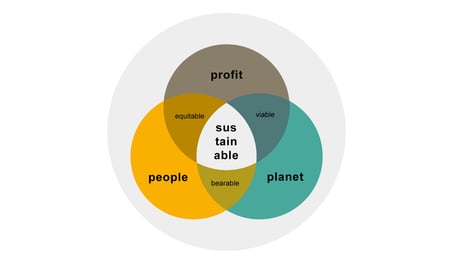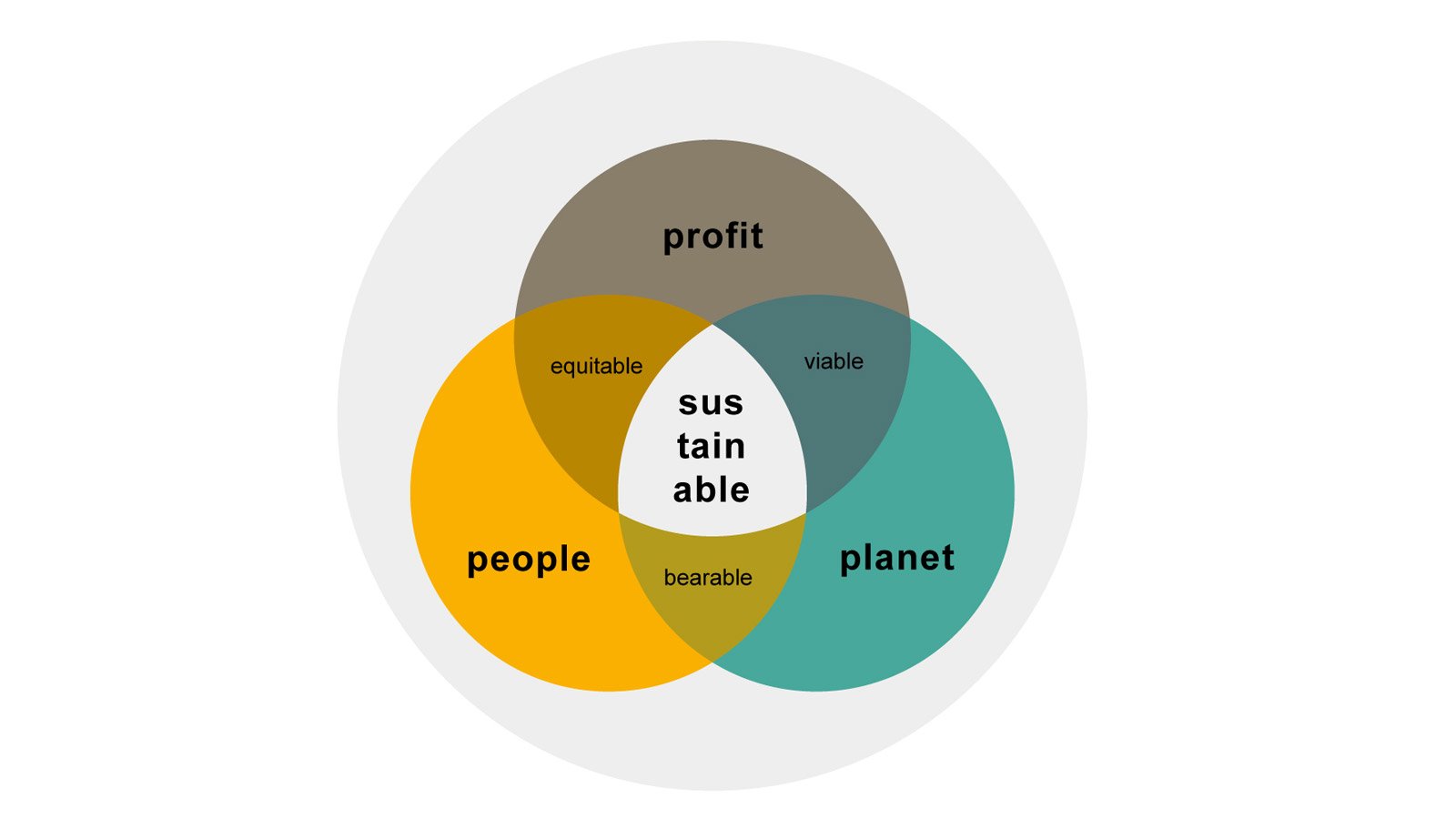Companies are increasingly seeing sustainability as an opportunity. The wish is expressed from society, employees find it increasingly important, investors are increasingly taking it into account in their decisions and clients or customers underline its importance. Opportunities are more relevant when sustainability and profitability go hand in hand.
In this blog we dive deeper into the concept of profitable sustainability. How the balance between these two can be achieved and what role your handling of natural resources can play in this. As an expert in the field of sustainable waste and natural resources management, we would like to explain our view on this. Starting at the core: the definitions of both concepts.
The definition of sustainability
The word sustainability is about future-proofing. Today it has become a catch-all term associated with the environmental issue. However, the concept of sustainability encompasses more than ecology. Sustainability represents a guarantee for the future. So literally the ability to sustain which translates as the ability to sustain for the long term; also called future-proof business.
Sustainable development from a historical perspective
The Brundtland report concluded in 1987 that a balance of ecological, economic and social interests ensures sustainable development that is future-proof. This balance is further elaborated in the Triple Bottom Line principle. The three elements are referred to herein by the three Ps: people, planet & profit (prosperity). The central idea behind the TBL principle is that the three Ps are always in balance with each other with the aim of increasing business opportunities for the future.
 The people planet profit model
The people planet profit model
The definition of profitability
Profitability is about achieving financial returns. From the three Ps, profitability is not only about financial results. The profit and loss for the people or our planet plays an equal role. With the idea that a focus on profit only, people and the planet will suffer. Only when the three Ps are in balance, future-proof business operations are created. That is why the term profit (hard profit) was replaced in 2002 by prosperity (prosperity).
Let's combine those two concepts.
Profitable sustainability
Profitable sustainability is a balance between the two concepts over a period of time. Sustainability must pay off in the short term in order to take root within an organization. In the long term it is a prerequisite for obtaining or maintaining a right to exist within the new economy. Profitable sustainability is a balance between the two concepts over a period of time. Sustainability must pay off in the short term in order to take root within an organization. In the long term, it is a prerequisite to gain or maintain a right to exist within the new economy.
The new economy
Sustainable business models tie in well with the new economy, 'the new normal'. The new economy is future-proof: climate neutral, circular, inclusive and with fair chains.
|
The new economy is not only: |
The new economy is: |
|
focus on short term and financial gains |
integrality: in addition to a focus on financial returns, also a focus on social and natural returns |
|
shareholder values |
balance between people, profit, prosperity and stakeholder values |
|
dividends and bonuses |
do no harm; Corporate Social Responsibility |
|
unnecessary links in chains |
chain transparency and chain responsibility |
|
smart tax constructions |
take responsibility |
|
abuse gaps and / or opportunities in policy |
keep a helicopter view; the chain connection |
The Dutch government, as legislator, provides impulses for greening with the aim of a just, enterprising and sustainable society. From this role she sets frameworks and stimulates market developments. Or, when market developments fail to materialize, it stimulates the transition to a new and circular economy by means of legislation and regulations.
Examples of legislation and regulations
For example, there are regulations up to 2050 to make the Dutch economy circular. Think of the measures resulting from the transition program towards a circular economy, the Climate Act that aims to reduce CO2 emissions or the ex'tax (shifting from tax on labor to tax on natural resources and pollution).
Origin of the concept of profitable sustainability
Milgro has almost three decades of experience in connecting disposers and recipients of used raw materials. Profitable sustainability has always been the starting point for our approach. Value creation from the combination of the two. Earth & Earn together.
Sustainability on the agenda
Sustainability has been a side issue for companies for decades. In the last ten years, the importance of sustainability has increased significantly: it is on the strategic agenda, it is a boardroom topic and is increasingly an important factor in creating distinctive character.
But how to integrate this sustainability into business operations, in a way that ultimately serves Planet, People and Profit? Because only Planet without Profit is not sustainable. Many companies are now tackling this issue. And although the transformation and innovation of a new business model does not happen overnight, the transition within specific themes brings great and renewed opportunities.
The new economy: 'the new normal'
In the transition to the new economy, climate neutral, circular, inclusive and with fair chains are important themes. Sustainable raw materials management can contribute to achieving measurable results on these themes. Milgro takes its role by providing technology, methodology and approach that results in profitable sustainability. From linear to circular. From the current gray economy to the new green economy.












